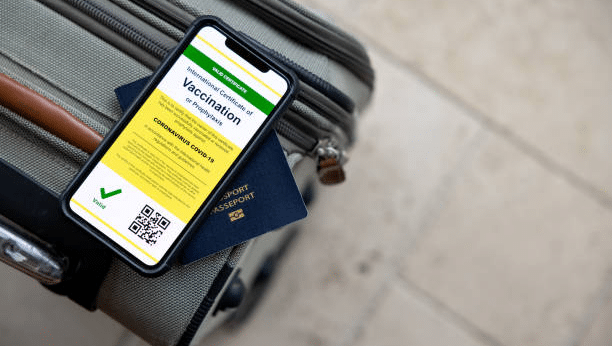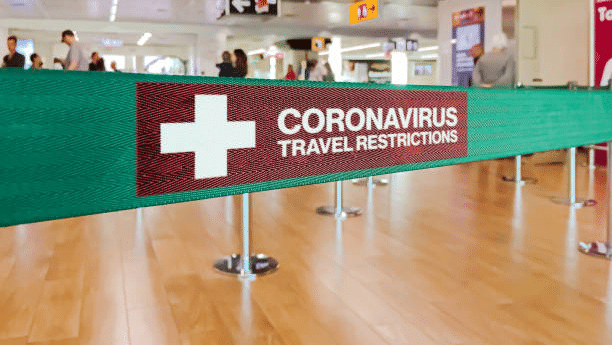This blog post will discuss the most essential travel and health documents to bring on your vacations if you want to travel safely and smoothly.
Introduction to the most essential travel documents
Essential documents for international travel include your passport, visas, travel insurance, health cards (like the GHIC), and vaccination certificates (such as the Yellow Fever card). If you take special medications, bring a letter from your doctor. Always keep copies of important documents and emergency contact information.
Pay attention to details when traveling abroad, as unexpected issues can arise. Poor documentation can lead to about 60,000 travelers being turned away at immigration every year, causing stress and high costs for airlines. Stay updated on changing requirements to ensure a smooth trip.
General travel documents
The travel and health documents needed for your voyage vary based on your itinerary and individual situation. This is why preparing in advance and using tools such as the IATA Travel Centre to get personalized travel advice is essential. Furthermore, such sites consistently update this information because rules and regulations change daily. Still, you can be sure that these documents will be helpful for any trip.
For international trips, you may need the following:
- Passport: For international travel, your passport is your most important form of identification. Many countries require it to be valid for at least six months after your planned departure date.
- Visa or Electronic Travel Authorization (ETA): Some destinations require a visa for entry, while others, like the USA (via the Visa Waiver Program), require an Electronic System for Travel Authorization (ESTA). For travel to the UK, many nationalities will need an ETA starting in 2025.
- National ID card: Within some regions, such as the EU and EEA, citizens can travel using a national ID card instead of a passport.
- Travel insurance documents: Carry a copy of your travel insurance policy, including emergency contact details, in case of a medical emergency or trip cancellation.
- Itinerary and booking confirmations: Keep your boarding passes, hotel reservations, car rental confirmation, and a detailed itinerary accessible.
- International Driving Permit (IDP): If you plan to drive, you may need an IDP in addition to your domestic driver’s license.
Passport, Travel Visa, and National ID Card
Proper identification is the cornerstone of international travel. To ensure your security and preparedness, it’s advisable to carry multiple official identification documents, such as your passport, national ID card, or driver’s license. If you’re uncomfortable carrying several documents, consider bringing copies. These can be especially useful if you lose your passport and must prove your citizenship at your country’s embassy or consulate.
When traveling abroad, it is also essential to have a valid passport. Many travelers need to realize that most countries apply rules regarding the expiration date of their passports. For most countries, visitors must have a valid passport for six months after they plan to arrive at their destination. However, this period can change. Either way, if you are planning a trip abroad, always check the passport validity conditions and the expiry date of your passport. This will help avoid unfortunate problems at the airport in your destination country.
Documents you need for travel in the EU and Schengen countries
As an EU national, you have the right to travel freely in the 27 EU member countries as well as in Iceland, Liechtenstein, Norway, and Switzerland (non-EU countries but members of the Schengen area), carrying either a valid passport or a national identity card (ID card). More importantly, your travel document must be valid on the day of travel. Children and minors must have their own passport or ID card. If traveling with your non-EU family members, the specific rules apply to them.
When do you need to show your passport or an ID card?
You don’t usually need to show your passport or ID when crossing the internal borders of the Schengen area. However, all Schengen area countries can reintroduce temporary border controls on exceptional occasions, such as a danger to public policy or national security.
Note: You must also show a valid passport or ID card if you travel between a Schengen country and Cyprus or Ireland, and you must show a valid passport or ID card when a country applies temporary border controls.
Health Travel Documents
Health travel documents are familiar to international travel. Individual countries have long-lasting entry requirements, such as yellow fever vaccination certifications. However, this was limited to specific countries, whereas most countries worldwide have enforced the COVID-19 travel document entry requirements. Currently, we are seeing a reduction in COVID-19 travel restrictions. However, checking the latest rules before departure is essential; some might be implemented on short notice.
Medical and Travel Insurance Proof
First, unexpected situations can and do happen, and they can be extremely stressful when you are abroad. That is why the right travel insurance is essential. Travel insurance can be summed up in two main categories:
- Insurance for medical expenses and
- Insurance for trip cancelations.
Having a copy of your travel insurance certificate with you is therefore essential. Furthermore, Insurance companies often provide a printer-friendly card or summary that includes emergency contact details, which you should always hire. You can also use their mobile app to have all the required information. You should also contact your insurance provider to verify what your insurance plan covers.
Travel Itinerary Details
Flight ticket details, accommodation reservations, and car rental confirmation are critical for your trip. Keeping up with all your reservations can be challenging. But having copies of your itinerary and reservations with you can make your trip much smoother. More importantly, it can help sort out any issues during check-in at the airport or hotel, and it’s a simple way of helping you keep track of your travel plans. You can have these as printed copies or use one of the several Travel Planner apps or tools you can find online. Additionally, you can set a reminder for yourself to do your check-in or book a taxi to the airport in advance.
Other Documents
Since the start of the COVID-19 pandemic, several countries have introduced passenger locator forms, which must be presented at check-in or immigration. After filling out the form, travelers are often provided with a QR code or a reference number. Other documents could also be required; that is why it is always important to check what is needed for your trip when planning your holiday and, ideally, verify the requirements once again closer to your departure date, as entry rules and regulations change daily.
Where Can You Find the Latest Travel and Health Document Requirements?
When planning a trip, you can easily find the latest passport, visa, and health requirements advice based on your details and itinerary using the IATA Travel Centre. Additionally, you can check Travel and Health by the World Health Organisation. If you are traveling to Europe, we recommend checking Your Europe page. These resources provide comprehensive information covering passport, visa, and health requirements, as well as airport tax information, customs regulations, and currency regulations.
- Passport requirements and recommendations
- Visa requirements and recommendations:
- Health requirements and recommendations
- Airport tax information
- Customs regulations concerning the import and export of goods and small pets
- Currency regulations
- News on regulation changes
Safe Storage for Your Documents
Transporting and storing your documents during your travels is also essential. Consider purchasing a waterproof and RFID-blocking travel wallet to ensure your documents are safe and secure during your trip. Anti-theft bags are ideal for your daily tours and exploring new areas. Furthermore, you can buy backpacks and belt bags with hidden pockets to protect your essential items. However, if you travel with a bigger group, travel document organizers with space for everyone’s passports and documents are an easy way to stay organized and protected.
The Conclusion: Travel and Health documents
When you think of travel, you think about what to pack and shop for. One thing we often need to remember is our travel documents. Some essential travel documents are must-haves when going on an international trip, and forgetting these can dampen your plans. Thus, you should check and follow the checklist to ensure you have all the travel documents needed for a smooth and enjoyable trip.
If you know of any other genuine sites that provide helpful information about Travel and health documents, please write them down in the comment section below.
Note: You can find more helpful articles like this on our Travel Resources page.
References and sources:
Photo credits:
Featured photo: @Onfokus






